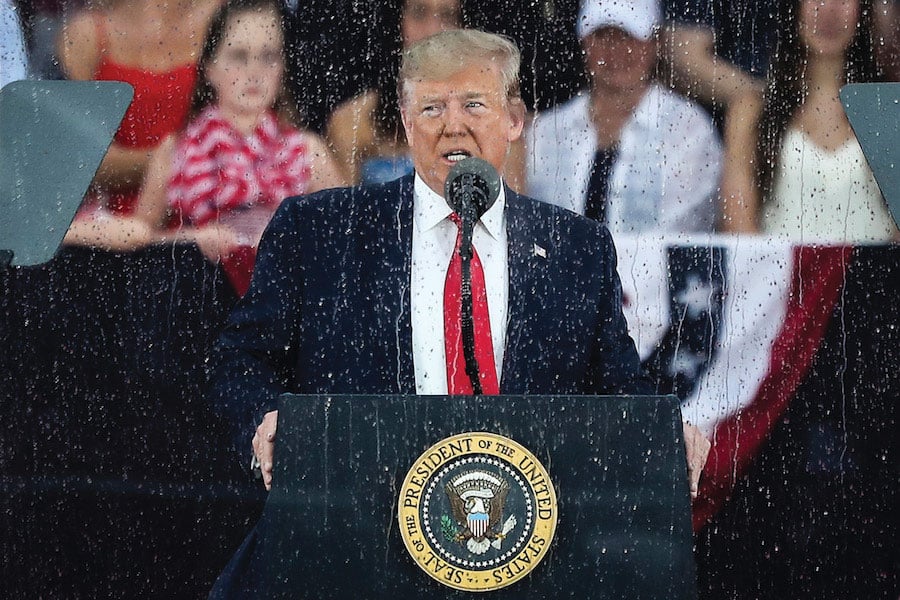Current impeachment proceedings impact middle, high school curriculums
President Donald Trump delivers remarks in front of the Lincoln Memorial in Washington, D.C., on July 4, 2019. Trump was impeached for abuse of power and obstruction of Congress.
February 2, 2020
As the Senate tries President Donald Trump for abuse of power and obstruction of Congress, some Evanston teachers are harnessing the events on Capitol Hill to engage students in classes related to government, history and civics.
Only about 30 percent of American adults could define “impeachment” last year, according to a Business Insider Poll, although 54 percent said they “generally or thoroughly” understand it.
Martha Mann, a social studies teacher at Haven Middle School, said she had to navigate this misinformation and lack of knowledge as she taught her seventh-graders about impeachment.
“Evanston’s already a fairly civic-minded place, so a lot of them are hearing about it already and a lot of them know the word,” Mann said. “But (there are) a lot of misconceptions with impeachments even among adults, about what it means.”
Educators teach impeachment from different angles to suit a range of curriculums. For Michael Pond, a social studies teacher at Evanston Township High School, the House proceedings already aligned with a unit about the Constitution in his civics class.
He said his class emphasized thoughtful analysis as students read constitutional articles related to presidential power and impeachment.
Pond also streamed some of the live House proceedings during class. He said students were more interested in the topic this year than in the past, but students had mixed reactions when they watched the impeachment live.
“A lot of students are looking strictly for some of the fireworks, the explosive things, the clips that they see on the news of people going at each other,” he said. “And when we watch some of the actual proceedings, it actually seems much slower, more meticulous and mundane than they were expecting.”
David Feeley, who teaches AP United States Government and Politics at ETHS, said he also used live footage and the Constitution. He said teaching about impeachment evoked a different student response this year than in previous ones, because students now view the process as a “landmark” in their lives.
At the same time, he added that some students seem tired of impeachment and believe there will be no legal or political consequences.
“Students are kind of used to this activity, especially from the executive branch and the congressional branch not doing much about it,” he said. “So they try and protect themselves from all the things that they don’t like about this administration.”
Meanwhile, Mann noted about 40 percent to half of her middle-schoolers were indifferent to impeachment, while other students want to discuss it for entire class periods.
Mann said she uses resources like The New York Times Upfront and CBS This Morning: Eyeopener to teach. She also said students drive their own learning, with her seventh-graders bringing their own questions to launch discussion.
She said students see and hear about impeachment all the time, so the ability to understand the process is “empowering” and the opportunity to teach about it is invaluable.
“These things in history we’re teaching about happened so long ago that (students) have no picture of it in their heads,” Mann said. “But when I say, ‘Imagine this story happening now,’ it adds life to it. It gives more meaning. It’s easier for them to understand, and it’s easier for them to understand both sides.”
Email: [email protected]
Twitter: @maxlubbers
Related stories:
–Northwestern professors discuss first public impeachment hearing, impact on 2020 presidential race
–Illinois House splits down party lines on impeachment
–Evanston political leaders share impeachment attitudes












